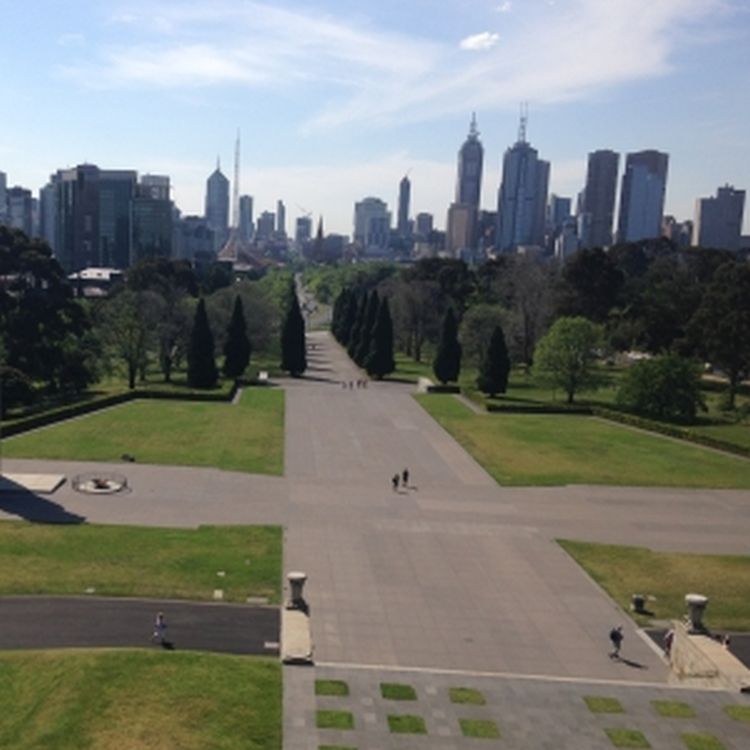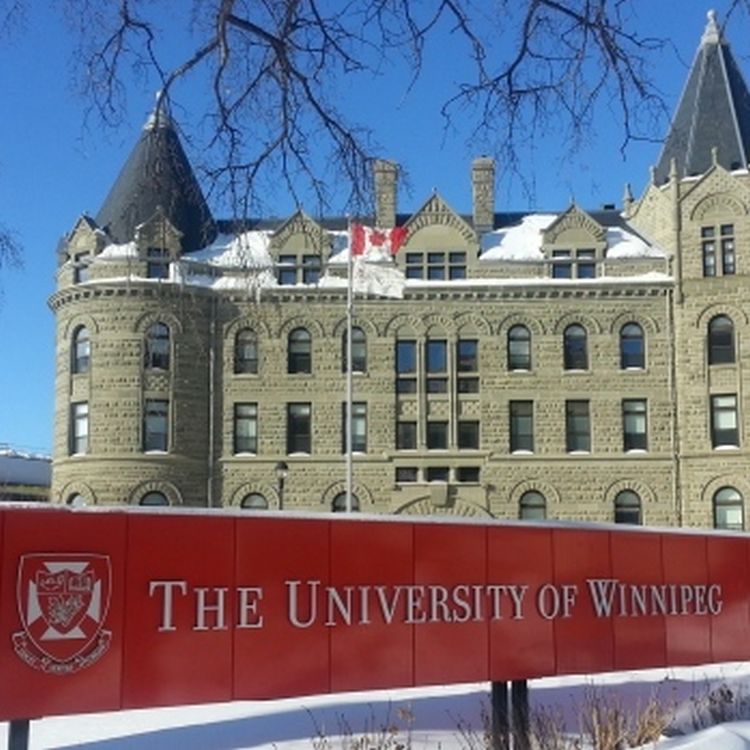You can find all relevant information about the studies in the Moodle course room "Rund ums Studium"!
There you will find, among other things:
- Timetables
- Examination schedules
- job offers
- Information about events

You can find all relevant information about the studies in the Moodle course room "Rund ums Studium"!
There you will find, among other things:

In the case of applicants for a higher specialisation semester (university changers), it must first be checked whether formal admission to the Bachelor's degree program in Industrial Engineering and Management is possible. There must be no obstacle to enrollment (final failed studies in industrial engineering at a university of applied sciences or final failed module examination in a compulsory subject of our Bachelor's degree programme at a university of applied sciences).
Please send the following documents electronically to the Chairman of the Examinations Board:
The Examinations Board will assign you to a higher specialisation semester if you are suitable for the studies in the Bachelor of Industrial Engineering and Management. For this purpose, the number of ECTS points that can be recognized must be at least 15. If this is not the case, an application must be made to the first specialisation semester. Academic achievements are not yet recognized at the time of placement. After registration in a higher specialisation semester, students must go through the recognition process.
1. the student downloads the "Application for Recognition" form from the Examinations Board website and fills it out completely according to the instructions.
2. the student submits the application to the examination office (in building A) and presents:
3. a check is made in the examination office for the existence of certified certificates of achievement and module descriptions (or other evidence in the case of non-university achievements). The student receives an acknowledgement of receipt and, if necessary, a request for missing documents by e-mail with a deadline. 4.
The Examinations Board will make a decision within a reasonable period of time. The student will receive a notification of the recognition result from the examination office after three months at the latest. The recognition is visible in the online system.
To a limited extent, it is possible to have examination credits from education and continuing training recognized. Please contact the relevant specialist lecturers.
If you have completed an apprenticeship as an industrial foreman in the metal or electrical sector, you can have parts of your apprenticeship credited. The relevant forms are available in the download area on the right. If you have any questions, please contact Mr. Deutges.
Here you can find an overview of the creditable subjects:
Credit for industrial master electrician


Are you studying industrial engineering in your bachelor's degree program and would like a unique opportunity to enhance your career opportunities and studies by earning a double degree without extending your studies?
Then apply for a stay abroad at the Chinese-German University of Applied Sciences (CDAHW) at Tongji University in Shanghai:
This study abroad includes a two-semester stay in China, which corresponds to our 5th and 6th semester. The studies consist of one semester with subjects in German and English and one semester in which you complete the practical phase and typically write your Bachelor's thesis in a German company in China. Since these two semesters are fully recognized as the 5th and 6th semesters of our Degree programme, you get the chance to study abroad for one year and still finish your studies in standard time to degree.
And best of all: in addition to your degree at The Hochschule Niederrhein, you will also earn a bachelor's degree at our Chinese partner university.

What was it like.
Motivating myself to pursue the Chinese double degree was one of the best decisions of my life. While it is not always easy due to fundamental cultural differences and the Chinese language, you notice how you grow from your challenges. You learn to communicate despite obstacles and to tolerate completely different ways of thinking or habits. Especially in intercultural understanding, professionally as well as socially, and in the academic field, the year abroad was very instructive.
How should one imagine everyday life, how is studying there?
The academic day-to-day life in the first semester is quite full due to a thoroughly structured study schedule with official compulsory attendance. Long lunch breaks often drag modules into the late afternoon or evening, and block courses can also take up the weekend at times. Some projects, case studies and presentations also take up free time.
Up to this point, everything sounds very stressful, but you spend this time almost exclusively with your fellow students. Through the association as a German class, with which you also live together in the dormitory, the boredom quickly flies and you learn to overcome everything together and much easier. Many have also attended voluntary language courses or sports events. Due to the balanced program, there are enough variations for everyone. Only going to parties in the city center often seems annoying due to the 90-minute commute by train.
Of course -as it should be abroad- you mingle with the people. Unfortunately, this is not always easy, since only a few Chinese dare or are able to speak English. This is true on campus as well as in the city center. Most of the time, however, the Chinese are very accommodating when you need something, and you can still get there with a translation app. In the international dormitory, there are also many French and Italians, which means that internationality can also be found in the dormitory.
Where and how did you live?
Tongji University offers that you either live in the international dormitory by default or in the nearby external block of flats. The former costs around 160€ with 9 to 16m² in a single or twin room. To maintain your own furnished 80m² apartment is around German prices and requires the purchase of some things in addition. In my opinion, however, you make better German as well as international contacts in the dormitory and the many friendships enrich your stay abroad enormously.
How did you perceive the people in China?
In principle, people in China are very curious, especially when it comes to foreigners. Because of the low migration, many people rarely, if ever, have contact with foreigners. This is especially true away from the big cities. Unfortunately, however, you always have to overcome the language barrier, because the Chinese rarely speak English, both in the big city and on campus. Accordingly, most of them behave shyly when meeting each other. Nevertheless, once the cultural resistance is overcome, you learn to appreciate the hospitality and courtesy of the people. This opens doors to great stories relatively quickly.
In general - what was your personal highlight?
It's very hard to pull out just one personal highlight from my year abroad, but the 1-month trip through northern China between the two semesters was my first winter vacation up to that point and is definitely unforgettable for me. Together with a fellow student we traveled through snowy provinces, different cities or dreamlike landscapes, up to the -35°C cold Harbin for the international Snow and Ice Festival. Besides the countless, up to 40m high snow and ice figures, we also followed an invitation to join the Chinese New Year traditionally. The deep, different impressions have been an excellent change to the other impressions and have shaped my image of the culture very much.
Were there also difficulties?
Of course, this new environment is fraught with difficulties. However, apart from communication, these are mostly of an imaginary nature. What I mean is that our usual bureaucratic dealings are very different from everyday life in China. On the spot, people often panic that documents or other matters will not arrive on time or are insufficiently planned. Even if this is the case, weeks of processes are suddenly carried out at lightning speed and one realizes that the fear was in vain. In case of other problems, you will always find assistance in the Administration or with specific contacts, so that you are never left alone. The only difficulty that no one can help with remains the connection to the much-needed VPN, which is plagued by outages every now and then.
Were you able to travel?
Due to the well-structured study schedule with some block courses on the weekend and an official attendance requirement, traveling during the semester is usually difficult. Attendance is also checked several times during the semester. However, you can occasionally speak openly with the professors and ask for an exemption to squeeze in a 3- or 4-day trip. Otherwise, you can use the 6-week break between semesters from mid-January to March to travel. In the internship semester it depends on the conditions from the employer, but actually small 3-day trips are doable and there is enough time at the end of the semester anyway.
Your personal conclusion
One of the former graduates described his stay as follows: "Shanghai is like a mirror of yourself - if you want to make a career, you find the contacts; if you want to immerse yourself in the culture, you find openness and hospitality; if you just want to have fun, you find parties every day." I completely agree with this. I definitely do not regret spending a great year in China.
How was it?
In a word? - Phenomenal.
How should one imagine everyday life, how is studying there?
Everyday life depends a lot on where you live. I lived on campus and found everything there that you need for everyday life. Be it the food mile with more than 15 restaurants, a variety of sports facilities, a few supermarkets or several hundred like-minded students. For me, everyday life began with a manageable breakfast consisting of a little fruit, before lunch was on the agenda after the first two lecture blocks. After a one-hour break, the lectures continued, depending on the fullness of the semester or daily schedule, before there was enough time for sports or other activities in the late afternoon. Towards evening, it was important to make contacts, especially in the early days, whether at a joint dinner or over a cold drink or two.
Where and how did you live?
I lived in the dormitory for foreign students - Liúxuéshēng on the campus of Tongji University. The usual cleanliness of my new accommodation was established within a short time of moving in and the size was perfectly adequate for the duration of my stay. I felt very comfortable in my own little home after only a short time. Each room is spartanly furnished, but equipped with the most necessary things and has a balcony. My room was on the 6th floor of the dormitory, so I had a beautiful view in the morning and evening, contrary to expectations.
How did you perceive the people in China?
The overall impression was and still is mostly positive. Right on the first day, two Chinese students willingly helped me find my way around the sprawling campus and showed me everything I needed to know. Even outside the campus, the people in China have remained very helpful, courteous and friendly in my memory. Of course, there were also some negative impressions. In most cases, however, these were due to language barriers or, depending on the age and origin of the people, too great cultural differences. Even though the culture and mentality of the Chinese population is completely different from ours, I felt more comfortable and "welcome" there in some places than in my home country.
In general - what was your personal highlight?
My personal highlight? - I can't pinpoint anything in particular here. The only thing that comes to mind: the moment when I realized how much I had settled into this foreign culture in a short time and how much I liked it there, so far away from my family, friends and home.
Were there also difficulties?
Of course, everyone has difficulties settling in at the beginning, finding their way in an unfamiliar environment or coming to terms with the cultural conditions. Misunderstandings due to insufficient language skills, for example, were regularly pre-programmed in the restaurant. However, neither I nor anyone else I met in the course of time was faced with insurmountable problems.
Were you able to travel?
As a participant in the non-degree program, I logically had plenty of time to travel after the lectures and written examinations, in mid-January. But even during the lecture period, there is the possibility of short trips or excursions due to national festivals and holidays. You don't have to travel far to get to know the country, the people and the culture, but it is advisable to take advantage of the opportunities that are offered and to explore China with all its facets.
Your personal conclusion:
I advise everyone who is thinking about doing a semester abroad to work towards this goal in order to realize it as soon as possible. In my eyes, China was and is a perfect choice, because regardless of the duration, this adventure never felt like a vacation or a stopover, but rather like a new and eventful phase of life from the very beginning. Also from a financial point of view, a semester abroad in China is easier to manage compared to one in Europe or the USA.
So: meet the requirements | pack your suitcase | experience adventure
For questions/interests: maximilian.patalas@stud.hn.de
How was it ?
Super. Unfortunately, the time has passed so quickly, but I was able to experience a lot and also intensively get to know the Chinese culture.
How do you imagine everyday life and studying to be?
It varies during the course of the studies, but in general the time commitment is very high. During the week, you are mainly busy on campus and even have lectures on the weekend. But afterwards you can eat with your friends in a restaurant on campus or relax during the numerous sports activities.
How and where did you live?
In the first half of the year, I lived in a single room in the international dormitory, and in the second half of the year, I lived in a three-bedroom apartment with a work colleague, which was provided by my company, where I completed my practical phase.
How did you perceive the people in China?
The Chinese are incredibly helpful and hospitable, as I have never experienced before. They are also curious and it's easy to strike up a conversation.
In general - what was your personal highlight?
Phew, that's difficult, because there were so many of them, but I would count the mountaineering in Zhangjiajie as number one where we encountered wild monkeys, mountain villages and unbelievably beautiful views.
Were there any difficulties?
Of course there were one or two obstacles due to the language barrier, for example in restaurants without pictures or when you got lost, but with an open mind and good sign language you always reach your destination and you hardly have to worry because the Chinese always understand you.
Were you able to travel?
There was enough time to travel. I focused mainly on China and made many small trips to get to know the real China. I also have a few friends who have traveled to many neighboring countries or have added a trip to Asia after this program.
Their personal conclusion:
I would do it again and again and recommend it to everyone who wants to get to know a completely different culture. It has brought me personally and professionally very much and it was a great time.

Reinarzstr. 49

A semester abroad offers the unique opportunity to get to know foreign countries and cultures, to establish international contacts and friendships, and to prove oneself in a new environment. In addition, studies at another university offer the chance to get to know further learning and working methods and to improve foreign language skills.
There are several options for choosing a suitable university abroad:
In addition, there is an exceptional opportunity for Bachelor students to participate in the CDHAW exchange in Shanghai. This program offers you the opportunity to obtain a double degree from The Hochschule Niederrhein and Tongji University.
However, gaining this valuable experience requires a great deal of initiative in planning and preparation. Plan enough time for the organization of a semester abroad! You should deal with the preparations early - ideally one year before the start of the planned stay - and take the necessary steps.
Please pay attention to the application deadlines!
The following deadlines apply for an ERASMUS stay:
For all partner universities, the individual application deadlines of the individual universities must be observed! These can also be before the deadlines mentioned above.
The individual admission requirements depend on the requirements of the partner universities. For further information, please refer to the websites of the partner universities.
In general, the minimum language level required for studies is B2.2 in the language of instruction. Further language skills, for example in the national language (if this differs from the language of instruction) are recommended.
In addition to the language skills, the recognition of the courses is especially important. In order to achieve a problem-free recognition, you should think early about which courses could be completed abroad and adjust your own study plan accordingly. This will increase your chances of getting a place at the partner university of your choice.
In order to ensure problem-free recognition, it is agreed in advance with the international coordinator in the learning agreement which courses will be taken at the partner university and which courses can be recognized for this purpose at the Hochschule Niederrhein.
An internship semester abroad is a very good way to start an international career. You gain experience with foreign employers, get to know foreign ways of working and get the chance to develop language skills and intercultural competences. It also gives you the opportunity to combine the experience of staying abroad with gaining work experience and applying the knowledge you gained during your studies.
You can obtain an internship in various ways:
One possibility is to apply directly to advertised internship positions or to send speculative applications to interesting companies. This requires a high degree of initiative, but can be very rewarding!
Many organizations and placement agencies also offer interesting internships:
The same rules apply to an internship abroad as to an internship in Germany. The recognition and supervision of your internship are subject to the same regulations as a domestic practical phase. Therefore, thoroughly study the practical phase page in the examination regulations. If you are not quite sure whether the chosen practical placement meets the criteria, you can discuss this in advance with the international coordinator.
There are various options and programs available to financially support your stay abroad. The following external pages offer further information:

Reinarzstr. 49
by arrangement
University of Newscastle
To the University of Newscastle >
RMIT University
Universidade Federal de Santa Catarina
University of Economic, Varna
Centria University of Applied Sciences
Dundalk Institute of Technology
universities of applied sciences
Poznan University of Technology
University of Technology and Economics
ZHAW Zurich University of Applied Sciences
Universidad Politécnica de Madrid
Universidad Politécnica de Valencia
Universitat Politècnica de Catalunya
Istanbul Technical University

Degree programme: Industrial Engineering, B.S.c.
Exchange year/semester: 2014 / 4th semester
Host university: RMIT University
City: Melbourne
Country: Australia

Degree programme: Industrial Engineering, B.Sc.
Exchange year/semester: WS 2014/2015 - SS 2015 (09/2014 - 04/2015)
Host university: University of Winnipeg, Manitoba
City: Winnipeg
Country: Canada

Looking for the right counseling center? Our counseling navigator will help you find it.